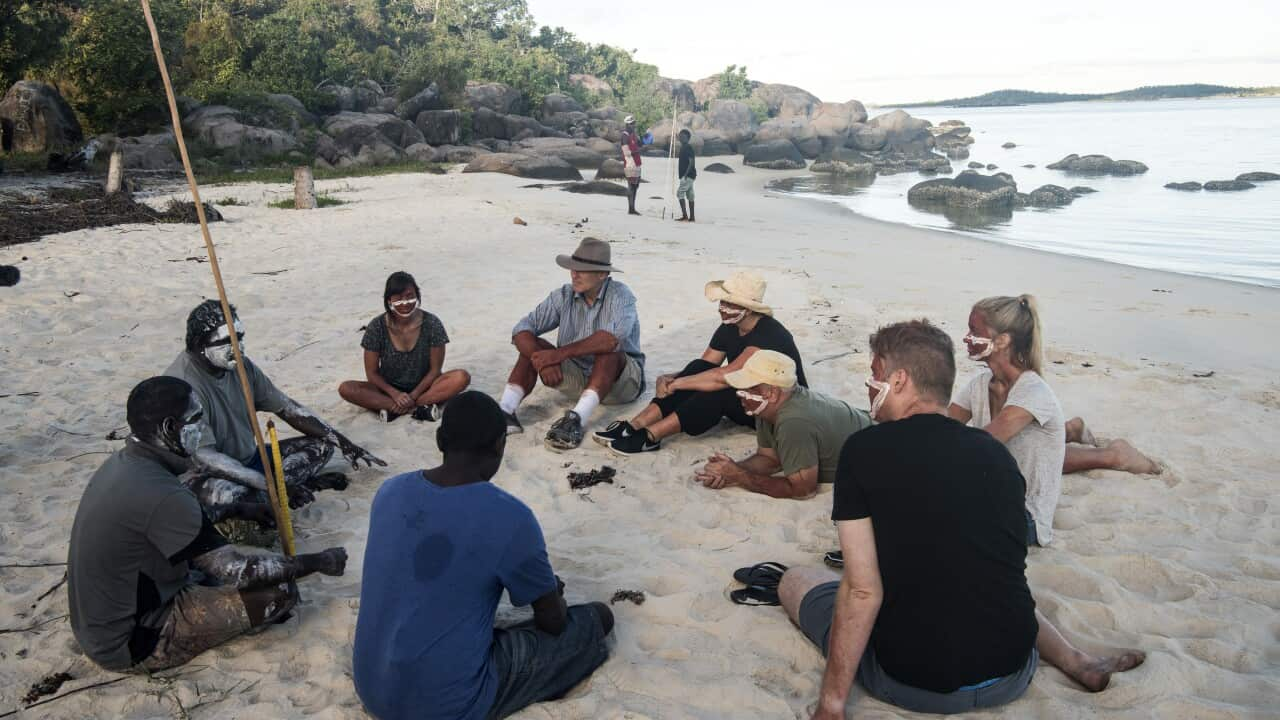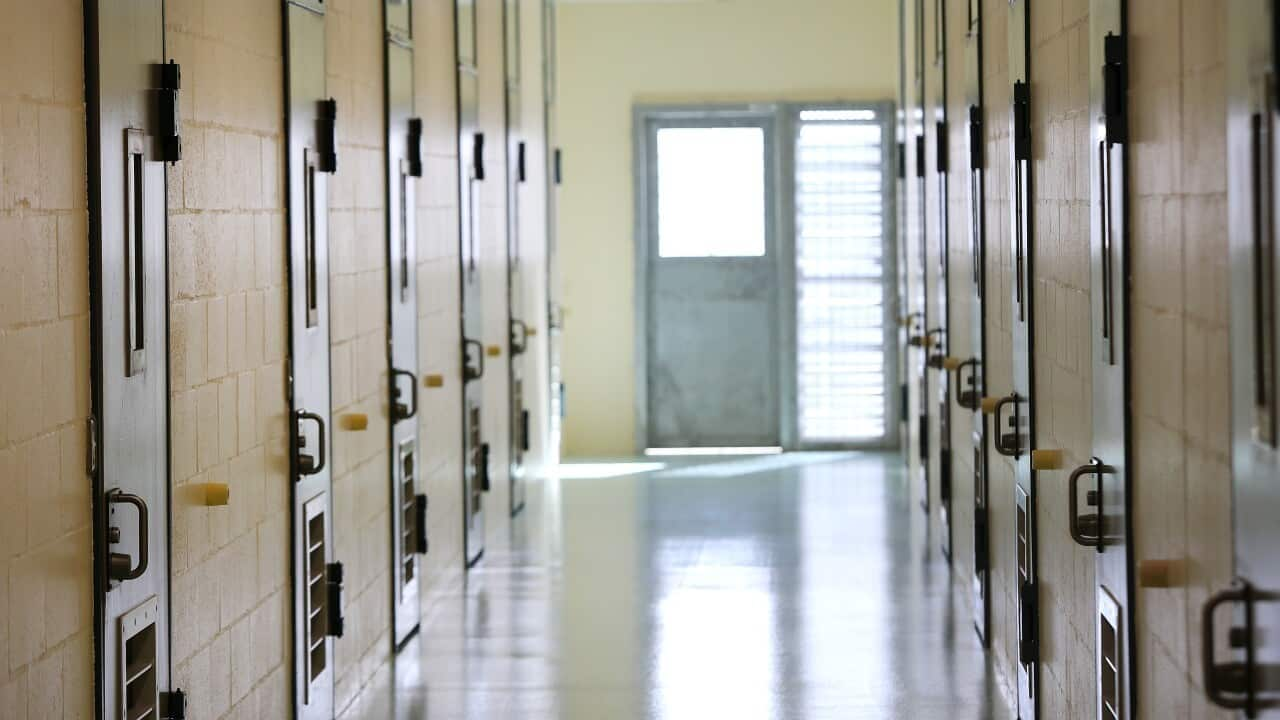When Niki McKenzie applied for emergency housing through the Department of Housing for herself and her 3-year-old daughter, the last thing she expected was to be confronted with blatant racism.
In a video posted by Niki’s friend Karina Millgate, a man at the Entrance Reef Resort is heard calling Karina and her sister in law Abo trash and telling them to ‘f**k off back to the bush’.
First Contact program becomes harsh reality:
It comes just after SBS releases First Contact, a landmark documentary series, hosted by Ray Martin; that shines a light on the deep divide between Indigenous Australians and the rest of the country.
“Aborigines should get off their a*** and give up the grog.”
“If pushed I would have to say I’ve had racist thoughts about Aboriginal people, I don’t hate them, I don’t love them but maybe I don’t care or think enough about them.”
“The Stolen Generation should be called the rescued generation - If they hadn’t been removed they wouldn’t have survived into adulthood to complain about being stolen.”
These are the thoughts and comments from a few of the six people who journeyed around the country to learn more about the First Australians for the program.
More than six out of ten who call Australia home have had little or no contact with Aboriginal people.
The chasm and disconnect between the First Australians and the rest of the nation is vast.
First Contact shines a light on this deep divide by taking a group of non-Indigenous people, from different walks of life and with strong and varied opinions, and immersing them into Aboriginal Australia for the first time.
It will reveal Aboriginal Australia in all its beauty, hope, culture, history, tradition, tragedy.
And of course racism.
Racism, which was what the raw footage depicted. Without camera crews and TV producers involved, this video shone a dark light on the true racism faced by Indigenous people on a daily basis.
NITV spoke to Niki’s friend Karina Millgate who posted the shocking video. “Niki was on the phone to her friend when the man started yelling at her about using the air-conditioning and stuff,” Karina said.
“Niki was on the phone to her friend when the man started yelling at her about using the air-conditioning and stuff,” Karina said.

Niki and her 3-year-old daughter Source: Supplied
Her friend on the phone heard the abuse and told her to pack up her stuff and leave for the safety of her and her young daughter.
Feeling intimidated and shaken up, she began packing her things. But it wasn’t until friend her friend arrived to collect her, when things really started to get out of hand.
Aboriginal Abuse
“He said fu** off you black abo and you fat b***h and basically kept calling her rude names Karina said who was appalled with the lack of professionalism and abusive racism.
In the video you can hear Niki saying “for a professional business person is this how you speak?”
He replied “And do you work mole? Of course you don’t of course you fu**ing don’t.”
The conversation continued to get heated with racial slurs such as black mole and abo trash.
The video has emerged on the same day that the Federal Government adopted Uncle Charlie Kings to end family and domestic violence.

Source: Supplied
Niki says she’s disgusted that her friends and her 3-year-old daughter had to endure verbal abuse that made her 'fear for her life.'
“Not once have I ever been spoken to like that, I’ve never had to deal with racism and I’m beyond shocked that not only me but my baby girl had to put up with that,” Niki said.
Niki doesn’t hold feelings of hate, but she can’t shake the fear and shock she felt after being spoken to like that.
“I wouldn’t know what to say to this man if I ever saw him again… I don’t want nothing from him, not even an apology because I just don’t want to be in that situation with someone so rude ever again.”
Situations like these are a harsh reminder that racism particularly for Aboriginal Australians is still present in today’s society.
The Entrance Reef Resort was unable to make any comments.
Tackling Racism:
The reactions from First Contact have been strong and overwhelming but Gooreng Gooreng man and CEO of , Justin Mohamed says a program like First Contact can help to tackle racism and negative perceptions of Indigenous people within our society.
“I think it provides an environment that is confronting, it’s off the cuff, it’s emotive and it’s reflective of the country. But we need to learn more about each other, we shouldn’t just stick with what we think we know or of what we read. We need to get to know both sides.”
However, in terms of changing negative perceptions toward Aboriginals Mr Mohamed says it’s a long term approach.
“It’s people understanding people - this comes from taking the time to get past the negative approach and the negatives that appear. For instance, the causes behind the statistics, so it’s the understanding and the expectations around culture. The way forward is to acknowledge history.”
6 out of 10 Australians have had little or no contact with Aboriginal people.
Mr Mohamed has dedicated the past 25 years to working towards building a stronger and healthier nation for Aboriginal and Torres Strait Islander peoples.
Reconciliation Australia conducted a survey which found that 6 out of 10 Australians have had little or no contact with the nation’s first people, but those statistics don’t surprise Mr Mohamed.
“Only 3% of the Australian population is Indigenous, so it’s not always easy to be able to meet and get to know Indigenous people, which is why more work needs to be done to normalise it and build it more into our workplace culture.”
There are many confronting scenes amongst the First Contact cast members and many of their beliefs will be challenged, but Mr Mohamed believes a program like this help with create a greater understanding and awareness of Indigenous Australia. “It’s not like the first series. That was one that featured unknown Australians, this time its people that are known. It’s good to see that reality TV can show that there is a human side to things. But it’s confronting to both sides, but it’s hoped that people can learn more.”
“It’s not like the first series. That was one that featured unknown Australians, this time its people that are known. It’s good to see that reality TV can show that there is a human side to things. But it’s confronting to both sides, but it’s hoped that people can learn more.”

First Contact Source: David Dare Parker
Mr Mohamed says Reconciliation Australia are always working to create solutions around tackling negative stereotypes and to create a more harmonious and inclusive society.
“There are two key areas: We have our Reconciliation Action Plan or RAP, which focusses on businesses and government departments and it helps to acknowledge history and links with places," he said.
"The other part is dealing with young people through our youth plan. It’s got tools for schools that can help teachers and students alike and more commonly aware of each other.”
Sparking Change:
In terms of topical issues in regards to Aboriginal Australians, a move to change the date of Australia Day from January 26th to a date that is more inclusive has surfaced, sparking intense debate and controversial conversations.
Mr Mohamed says it’s something we can do and something we need to do.
“We need to tread carefully as discussions on this can cause a wedge or a divide in society. We need to talk constructively about other dates that work for all of Australia, but we need to be careful and respectful in that conversation to see an effective change.
RECOMMENDED ARTICLE:

Aboriginal rapper Nooky shaken after Uber driver goes on racist rant









